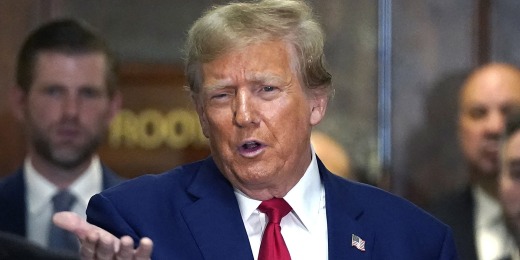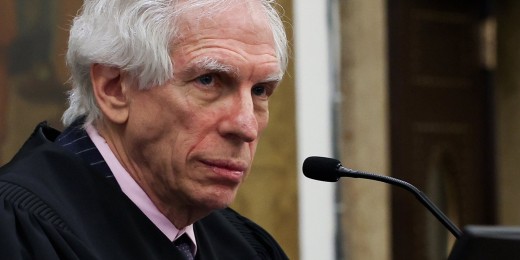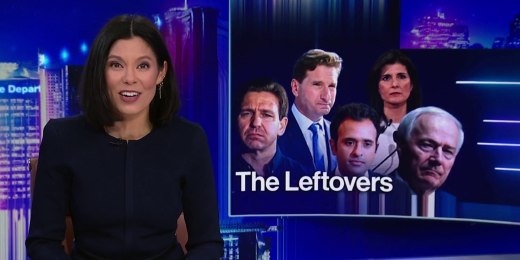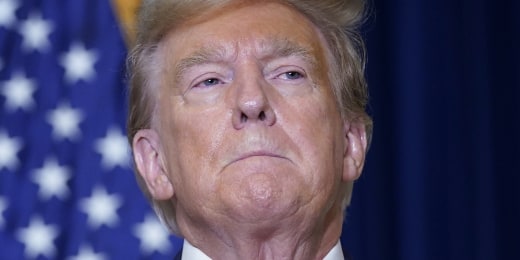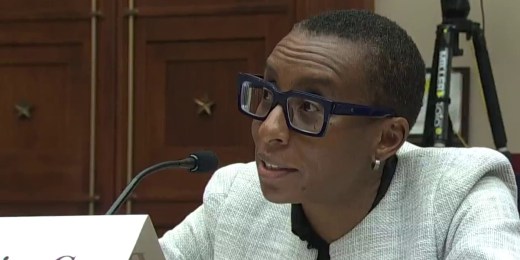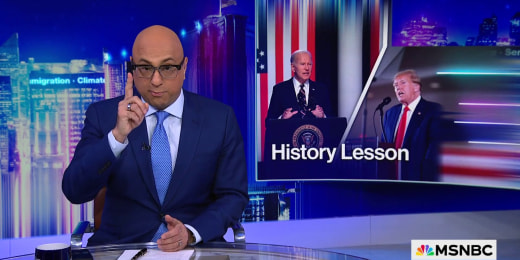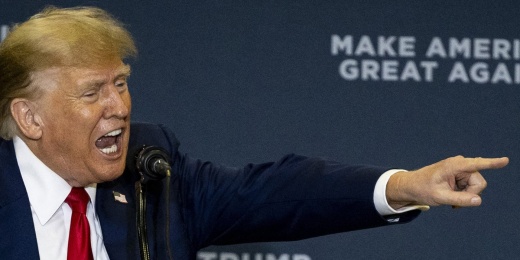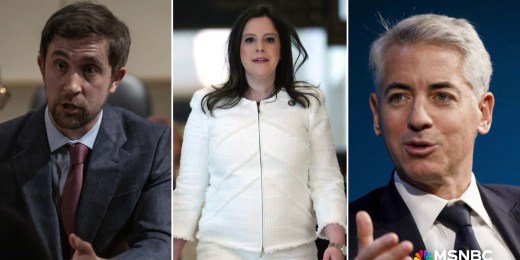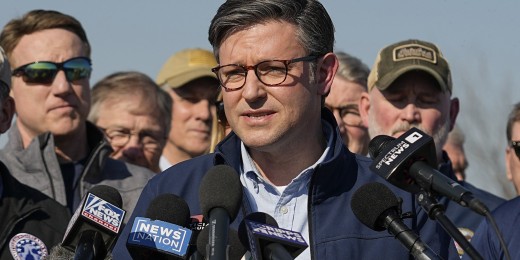To view our entire 2024 Franchise 500 list, including category rankings, click HERE
Started Franchising: 1964
Total Units: 8,320
Cost to Open: $575.6K-$3.4M
Everyone knows Taco Bell. But not everyone knows Sean Tresvant, who took over as CEO at the beginning of this year. And Tresvant likes it that way.
 "I've never been one who does it for the limelight," says Tresvant. He doesn't go on TV to pontificate, and generally prefers that colleagues be interviewed instead of him. "I'm probably the most introverted extrovert. I always tell people it's not about me. It's about the team. I don't need to get my bars up."
"I've never been one who does it for the limelight," says Tresvant. He doesn't go on TV to pontificate, and generally prefers that colleagues be interviewed instead of him. "I'm probably the most introverted extrovert. I always tell people it's not about me. It's about the team. I don't need to get my bars up."
Instead, Tresvant has spent his career raising the bar for great brands — spending time at Sports Illustrated and PepsiCo, rising to CMO for Nike's Jordan brand, and then joining Taco Bell in 2022 as its global chief brand officer. Now he's succeeding former Taco Bell CEO Mark King, who retired at the end of 2023, which means Tresvant is stepping into the hottest seat in the hottest brand in franchising, where attention will be hard to escape. But he knows his No. 1 mission:
"My job, and our job as the Taco Bell team, is to keep this brand hot," says Tresvant.
How hot is Taco Bell? So hot that it's reached No. 1 on our Franchise 500 for the fourth year in a row—only the second brand to accomplish that in the ranking's 45-year history. (The other was Subway.) So hot that unit growth was 12.4% over the past three years, worldwide system sales grew 11% in 2023, and its profit margins are 24% — a number that David Gibbs, CEO of Taco Bell's parent company Yum! Brands, called "industry-leading" during a recent analyst call.
Related: How Taco Bell Became the Top Franchise in the World
Tresvant has already turned up the heat since joining the brand by steering some of its recent attention-getting moves — like rallying Doja Cat and Dolly Parton to bring back Mexican Pizza (a beloved menu item that was discontinued during COVID), and partnering with LeBron James to "liberate" the trademark on "Taco Tuesday" (which was owned by rival Taco John's and Gregory's Restaurant & Bar, thus prohibiting anyone else from using the phrase).
Now Tresvant must keep this momentum going, while also coordinating with franchisees and acclimating to the challenges of leadership. Here, he discusses how to make a brand culturally resonate, how to keep it that way, and how great leaders can empower their teams.

Image Credit: Courtesy of Taco Bell
Your predecessor Mark King once told us a story: When he first joined Taco Bell, he didn't fully grasp how culturally powerful the brand had become. Then a week into his job, he was shocked by how many came out to a four-day Taco Bell takeover of a fancy Palm Springs hotel — where he ended up with a Taco Bell logo shaved into his head. I'm curious what you didn't fully appreciate about Taco Bell until you started.
My story is different from Mark's, but very similar in underestimating the power of the brand. Two things would happen. First, wherever I would go, if I was at an event or a gathering or a conference, everybody wanted to talk about their favorite Taco Bell meal of today or of the past. "When are you going to bring back the Quesalupa? What about the Enchirito?" or "Hey, bring the caramel empanada back," or "Hey, I just ordered from Taco Bell at my store, and you guys need to make sure that you keep so-and-so on the menu." It was pretty incredible — the love and the passion people have for this brand and the menu.
Then, of course, I like to represent the brand, so I'd wear Taco Bell merch to places, and people would stop me. "Oh, where did you get that?" I had a jacket that just had the bell on it, and one guy tried to buy it off me. That's pretty powerful. I don't know many brands in the world that have that cultlike passionate following.
Related: Yes, You Can Buy a Franchise In a Bad Economy — But First, Ask These 5 Questions
Branding is so interesting, because there's nothing inherently culturally resonant about Taco Bell, right? Same for Nike, which is cool now — but at the start, Phil Knight was hustling to make it relevant. Do you think that there's anything inherent about a brand that allows it to succeed culturally? Or can the right leadership accomplish that anywhere?
I do believe from the start that Taco Bell wasn't like any other brand. It has an incredible origin story, like some of the best brands do. In 1962, when Glen Bell started Taco Bell in California, think about it — it was Mexican food. It wasn't burgers. It wasn't fries. It wasn't pizza. So, inherently, it was different. Inherently, it was for people who were curious. Inherently, it was for people who were bold and courageous to try something new. Fast-forward, and I believe that DNA still exists in the brand.
That answer contained something that every great brand storyteller does, which is to build upon the origin story of a brand. There's really interesting research about how a founder's story can be a differentiation point for consumers. There's a very intentional connection you're drawing here, from the brand's origin to its positioning today — and I would love to hear you, as someone who understands brand marketing, talk about how to smartly use an origin story.
If I'm sitting in a room with marketing people, the question is: "How do you 'dimensionalize' the story?" Here are two answers. One is this idea of math and magic: How do you take all the math that is available today and turn it into magic? The other one is — we have a saying here, which I think Taco Bell does better than any other brand: "Hit people in the head, and hit them in the heart." You hit people in the head with your pricing, with your operations, with how you go to market — all very important things. But none of that matters if you can't hit people in the heart. You make people feel the brand, make people love the brand.
What's a real-world example of taking a piece of data and turning it into magic?
We have a lot of data from our restaurants and from our social channels. Whenever we post something about the brand, people talk a lot about menu items of the past. The Enchirito or Quesalupa comes up, and the threads just go crazy. "I remember when my mom took me," or "I remember how it tasted," or "I used to get it with tomatoes." So we took all that data, and in 2022, we started to have people vote on two items — to let the consumer decide which item we actually brought back on the menu.
That's the same insight that you personally got when arriving at Taco Bell, right? People would tell you whatever random menu item they remember. It's cool that the observation that you had as an individual turned out to also be a starting point for a powerful brand action. What should leaders do with the little personal experiences that they might have out in the world?
I think great leaders need to listen more, to the data and to the team. We could have explained that experience — which wasn't exclusively my experience — away. But if you have the right people in the organization, they'll say, "How do we take these two things, an anecdote and a real data phenomenon, and turn it into some magic about something that consumers can actually do?"
Related: How Taco Bell Is Becoming the World's Most Innovative Franchise
What I'm hearing is this process of capturing something that's in the air — that hasn't been put down anywhere, that's not from some test that had already been run. How do you create something that delivers something people want, but that they're not necessarily articulating that they want?
One thing that helps the organization get to the magic quickly is that, in Mark's time here, he had this idea of restless creativity. So it doesn't matter what function you're in — it's not only reserved for the marketers, but whether you're in ops, finance, HR, sales — this idea of being restlessly creative permeates the organization. When you have some anecdotes, and you have the quantitative data, the culture of being restlessly creative is: What if we put those two things together and let the consumer decide what we bring back?
Now, think about that. That sounds easy from me or the marketer saying it. But now you've got to go to supply chain: How available are the ingredients? You've got to go to operations: How do we make it on the line? How do you price it? All those things have to come together. You've got to bring the organization along about why this is a good thing for the consumer, for the business, for the franchisee. We wouldn't be able to do it if it was just a marketing idea. But since people have the DNA of being restlessly creative, it all comes together.
I've found that the best ideas always start with "What if we...?" But I've worked at places where we ran into exactly the problem you're solving for: We had a great idea, and then it got to the next department that would be involved...
And they're like, "No way."
Right. I've often wondered what went wrong. Was the idea not good enough? Was the other department just lazy? Maybe the answer is: Leadership must ensure that every department's job is, in some way, to at least engage with the "What if we..?" ideas. How do you instill that?
I believe this organization has a very high trust bar — not only internal to Taco Bell corporate, but also with the franchisees. Again, tie it back to the origin story: Where would the brand be if we didn't take some big swings? If we didn't say, "Just go with us on this one"? Sometimes we get it right — more times than not. But sometimes we take a swing, and instead of a home run, it might be a double. But we learn a lot from it.
Trust is a hard thing to build with franchisees. I hear this all the time from franchisors — that they want to introduce changes, but franchisees are uncomfortable. I know Taco Bell has a long history of empowering franchisees to think boldly. But it's another thing to have franchisees be "restlessly creative."
What makes the Taco Bell system unique is its incredible dialogue. In my first couple of weeks on the job, a lot of franchisees called me personally, and we talked about the business, we talked about my vision, we talked about their vision, we talked about what they think is working, what they think is not working.
I think whenever there's a big decision to make, there is what I will call "radical candor with respect." Because we're a system, everybody wants to do the right thing — but at the same time, we're not afraid to have tough conversations, have great debates, all in the service of getting either to the right answer or aligned around an answer. What we agree upon is this: They're not going to win all the time, and Taco Bell is not going to win all the time, but as long as the consumer wins all the time and the team member wins all the time, then we're doing the right thing.
I once heard you describe your leadership style in three words. You said, "approachable, curious, and empowering." How do you put it into practice?
Let's take approachable. I'm probably not the dictionary definition of a CEO for many reasons. Maybe it's the way I look, the way I act. I've got sneakers on right now…
I'm wearing Crocs right now.
And I'm always my authentic self. My authentic self is: It doesn't matter what level you are, whether it's the top of the organization or the people who are just starting out, I like to have conversations. I like to meet people where they are.
I drive my executive assistant crazy, because people say, "Hey, I want to have a coffee chat, or a little bit of mentorship with Sean," and I usually don't say no. I feel like I'm in my position because I had great mentors, leaders, somebody who gave me 10 minutes in a coffee chat. I have a career journey that started where most of the people start out. I want to always be approachable to those people.
I bet that attitude makes a huge difference when engaging with franchisees.
It does. David Gibbs, CEO of Yum! Brands, said something that really stuck with me: "When you enter the brand
or the business, come through the front door and the back door." Meaning, make sure you also come through the back door — to the kitchen — and thank the team members. I don't have restaurant experience. But you need to understand how the line works, and you need to understand how difficult it is when you're leading the drive-thru or making a Crunchwrap. Being approachable means that, when you go in the restaurant, you don't just stand on the other side of the counter.
Related: Use This Checklist to Avoid Buying a 'Zombie' Franchise
As someone who didn't have restaurant experience, I'm curious what you have done to feel comfortable in this space and what you would advise other leaders who are similarly entering a new industry.
I'll give you two. One is to be humble enough to know what you don't know. Go to the experts in those fields or the functional leaders, and learn. A lot of times, leaders — because they're in a certain position or have a certain title — they feel like they can't learn or shouldn't ask.
The second thing is probably some of the best advice I got early on: Don't try to be a black belt in everything. If you're going to try to be a black belt in everything, you can't accomplish it. They said, "Be a black belt in marketing — that's what you are. But be a brown belt or a red belt in development, finance, operations, HR, and then hire or have black belts in those other functions." I don't need to be an expert in every function. That's why I have an incredible team.
It's so critical — to give yourself permission to not be great at everything.
It powers the organization. It creates trust. They realize that, as a boss, I'm going to understand what they do and I may have points of view on development and have questions, but I'm counting on them to lead it.
Find the franchise that is best for you! Take our quick quiz and we will match you with a franchise that meets your financial needs, interests, and location.

Adblock test (Why?)





 "I've never been one who does it for the limelight," says Tresvant. He doesn't go on TV to pontificate, and generally prefers that colleagues be interviewed instead of him. "I'm probably the most introverted extrovert. I always tell people it's not about me. It's about the team. I don't need to get my bars up."
"I've never been one who does it for the limelight," says Tresvant. He doesn't go on TV to pontificate, and generally prefers that colleagues be interviewed instead of him. "I'm probably the most introverted extrovert. I always tell people it's not about me. It's about the team. I don't need to get my bars up."


